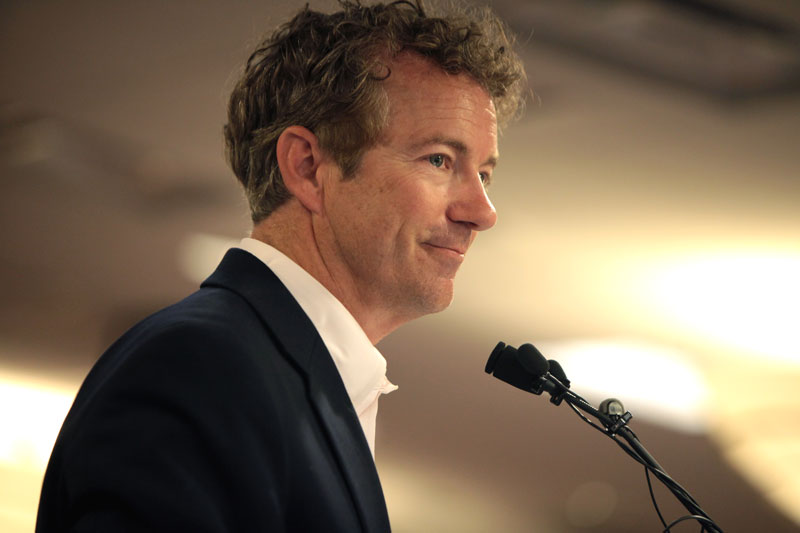For those not familiar with presidential primaries, the question always comes up, “why did they drop?”
To the layman, a single digit showing in the first vote of the season should be good enough reason for a candidate to pack it up and release his or her supporters to the rest of the field. It’s the logical and fair thing to do.
Looking at the 2016 race, if candidates were reasonable and fair, Jeb Bush and the crowd of “also rans” would have said “thanks for the fish” on the night of the Iowa Caucus and bowed out.
Mike Huckabee did just that with a touch of class after grabbing 1.8% of the vote.
Virginia’s Jim Gilmore, on the other hand, obtained only 12 votes (as in 0.0%) but remains in the race.
Rand Paul however came in a reasonable fifth place with 4.5% of the vote, coming close to doubling Jeb Bush’s vote total.
So why is it that Rand is dropping while Jeb Bush and even Jim Gilmore stay in?
To his credit, Rand Paul is a financial conservative even when it comes to his personal responsibilities.
As of his December 31st report with the Federal Election Commission, Paul was left with $1.2 million cash on hand and $250,000 in debt.
More than likely, the candidate burned through most of his reserve in Iowa and was left with the danger of going into the financial red.
While it’s common for presidential candidates to go into debt, it is not a common practice in the Paul family.
In 2012, Ron Paul closed his campaign with zero debt. The only other candidate to do so was Mitt Romney, who had an astounding $22 million left in the bank. All of the other candidates had significant debt, with Newt Gingrich topping out at $4.8 million (twice the debt of Barack Obama’s 2012 campaign).
Rand Paul dropped because it was the responsible thing to do . . . a rare and responsible action in politics.
As for Gilmore, he’s already $10k in the hole and will likely dip further into the red.
That brings us to Jeb Bush. This is the candidate who set the record on spending per vote with at least $2,800 doled out for every vote he received in Iowa. That’s an embarrassment. Jeb finished with only 2.8% support of caucus goers.
But Jeb financially remains strong with $7.5 million cash on hand with his campaign and an astounding $97 million war chest through his super PACs.
While Jeb could drop over $100 million on television ads (and likely will), the money will finance several beach houses for his consultants, but won’t likely bring him into the double digits on Super Tuesday.
Kudos to Rand Paul for practicing what he preaches.
As for Jeb Bush, he and everyone around him should be ashamed of themselves and the money they have wasted.























